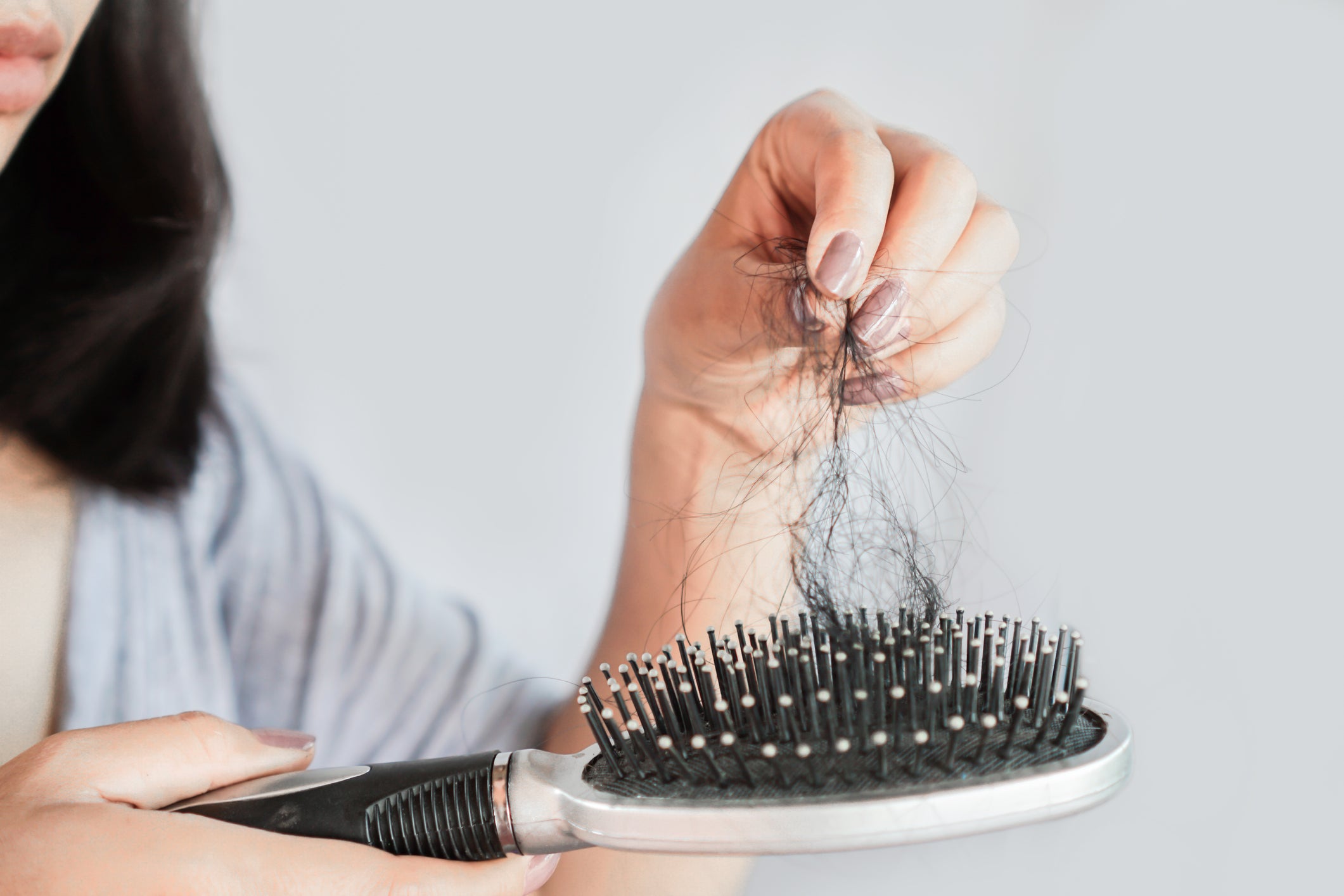Hair loss is an emotionally taxing issue that affects women of all ages. Although it's often overlooked as a symptom of menopause, this challenging experience can significantly impact self-esteem and confidence. In this comprehensive guide, we'll explore the different causes of women's hair loss and provide you with our top 8 actionable tips to nurture healthy, vibrant hair.
Personal Anecdotes: The Emotional Journey of Hair Loss
Meet Annie, 29
Stressed and losing hair but regained it through stress management and the right hair care strategies. The experience was emotionally taxing, but with the right strategies, including stress management and hair care guidance, she managed to regrow her hair and regain her self-confidence.
Meet Mark, 34
Embraced his genetic baldness and saved on hair care and grooming. Mark faced hair loss due to genetics. His father and grandfather experienced male pattern baldness, so he embraced his bald look and has never been happier, while also saving time and money on haircuts and grooming.
These anecdotes emphasize the diversity of causes and emotional responses to hair loss, making it even more crucial to pinpoint personalized solutions.
Understanding the Causes of Women’s Hair Loss
-
Hormonal Fluctuations: Changes in hormone levels, often associated with menopause or pregnancy, can lead to hair loss.
-
Genetic Factors: Your family history plays a significant role, especially if your relatives experienced hair loss.
-
Stress and Its Effects: Both physical and emotional stress can lead to a condition called telogen effluvium, causing hair to fall out.
-
Medical Conditions: Thyroid disorders, alopecia areata, and autoimmune diseases are among the culprits.
-
Nutritional Deficiencies: Lacking essential nutrients such as iron, zinc, biotin, or protein, can also affect your hair health.
-
Medications: Side effects from drugs, including chemotherapy medications and specific birth control pills, can also cause hair loss.
- Weight loss: Rapid weight loss can additionally contribute to hair loss, so it's essential to approach weight loss plans responsibly.

Top 8 Natural Tips for Combating Women's Hair Loss
1. Balanced Diet for Healthy Hair
Include nutrient-rich foods like salmon, nuts, leafy greens, and eggs in your diet, along with adequate sources of protein. Protein is essential for healthy hair, so ensure you're getting enough.
2. Effective Stress Management
Adopt relaxation techniques, regular exercise, and adequate sleep to manage stress better.
3. Hormone Management
Consult healthcare providers and consider natural supplements that are effective at balancing hormones. Natural hormone balancing powders like Her Balance can play a significant role in restoring balance.
4. Choose the Right Topical Treatments
Options vary from over-the-counter solutions to essential oils. Always read labels for potential side effects.
5. Scalp Care is Fundamental
Regular cleansing and massaging improve blood circulation and stimulate collagen production.
6. Gentle Hair Care Practices
Avoid harsh styling techniques and opt for natural, chemical-free products whenever possible.
7. Consult a Specialist for Personalized Care
Seek advice from nutritionists, naturopaths, or hair loss specialists for a tailored approach.
8. Wigs and Hairpieces as Temporary Confidence Boosters
Until you identify and address the root cause, wigs and hairpieces can offer a temporary confidence boost. Popular brands include Lusta Hair and Easi Wigs.

Frequently Asked Questions About Women's Hair Loss
When dealing with hair loss, questions are bound to arise. We've been asked a few of these many times, from customers of all walks of life. Here are answers to some of the most commonly asked questions:
Q1: Can hair loss be reversed?
While some types of hair loss are permanent, others are temporary and can be reversed with the right care and treatment.
Q2: How does diet affect hair loss?
A balanced diet rich in essential vitamins and minerals like biotin, zinc, and iron can significantly impact hair health and reduce hair loss.
Q3: Can hair care products stop hair loss?
Some specialized shampoos and conditioners claim to help but always consult with a healthcare provider for a tailored treatment plan.
Q4: Is hair loss a sign of a more serious condition?
In some cases, hair loss could be a symptom of underlying medical conditions like thyroid disorders, so it's essential to consult with a healthcare provider for an accurate diagnosis.
Q5: What age does hair loss commonly start for women?
Hair loss can occur at any age but is often more noticeable during significant hormonal changes like menopause.

Women's hair loss is a complex issue with both emotional and physical implications. However, it's comforting to know that effective, natural strategies can mitigate its effects. Incorporate these top 8 tips into your daily routine to encourage hair regrowth and bolster your hair's overall health and vitality.
Looking for more ways to boost your hair’s health? Stay tuned! Nature's Help is soon launching a revolutionary new hair product that you won't want to miss. Visit Nature's Help for the latest updates and holistic solutions for women's health.






